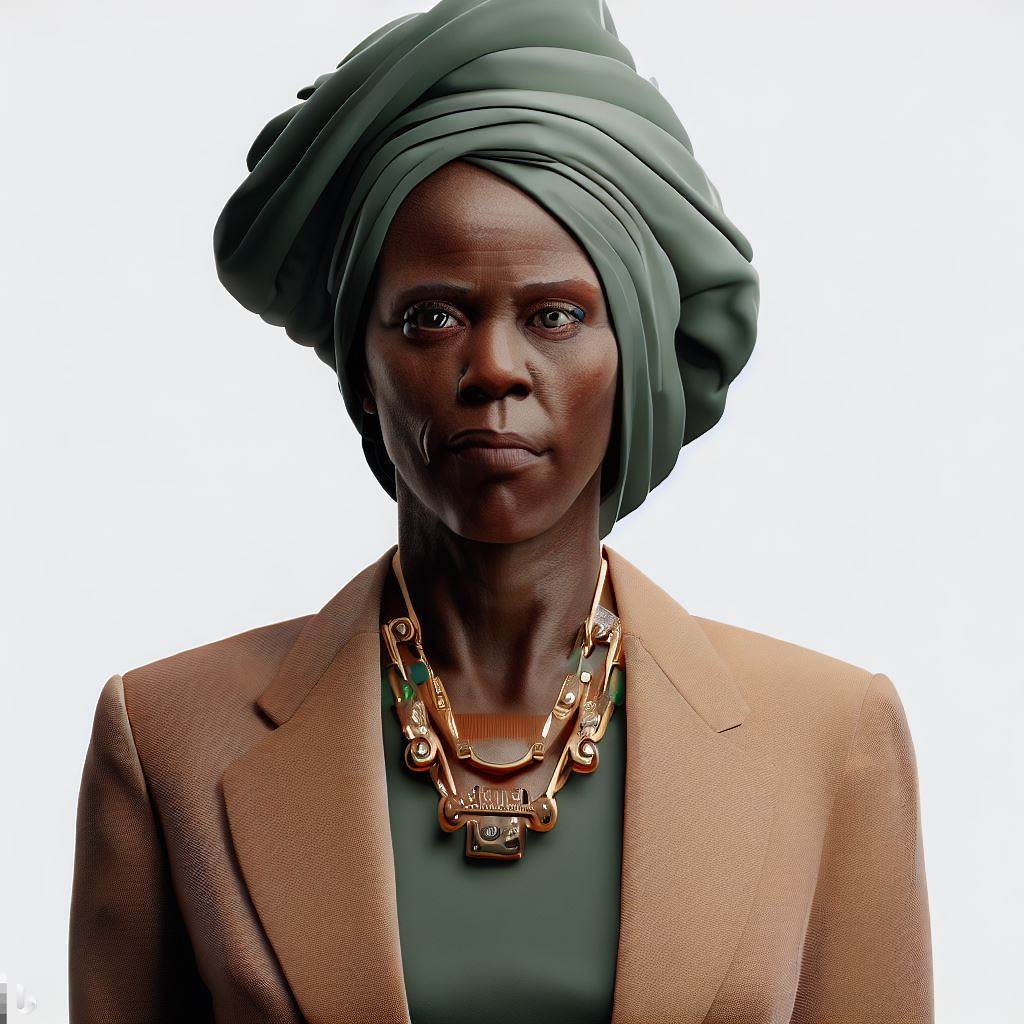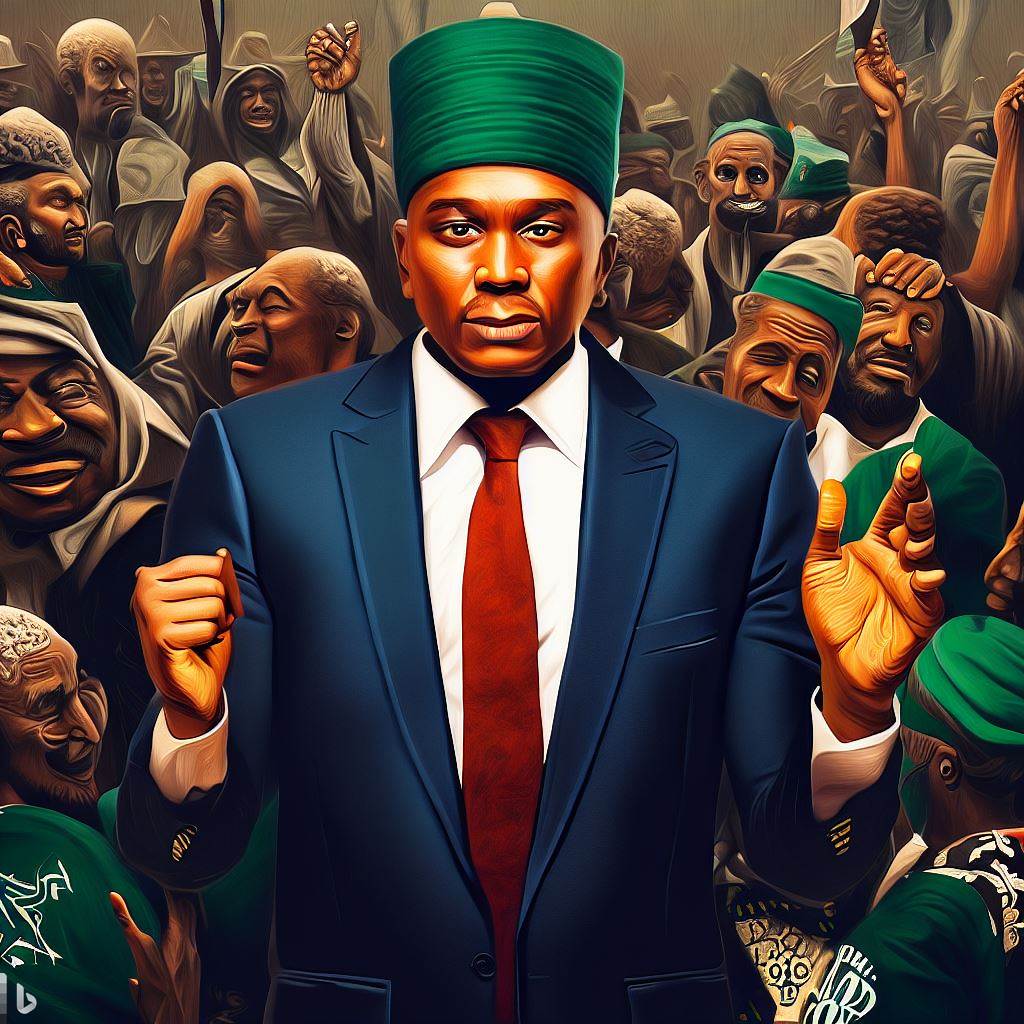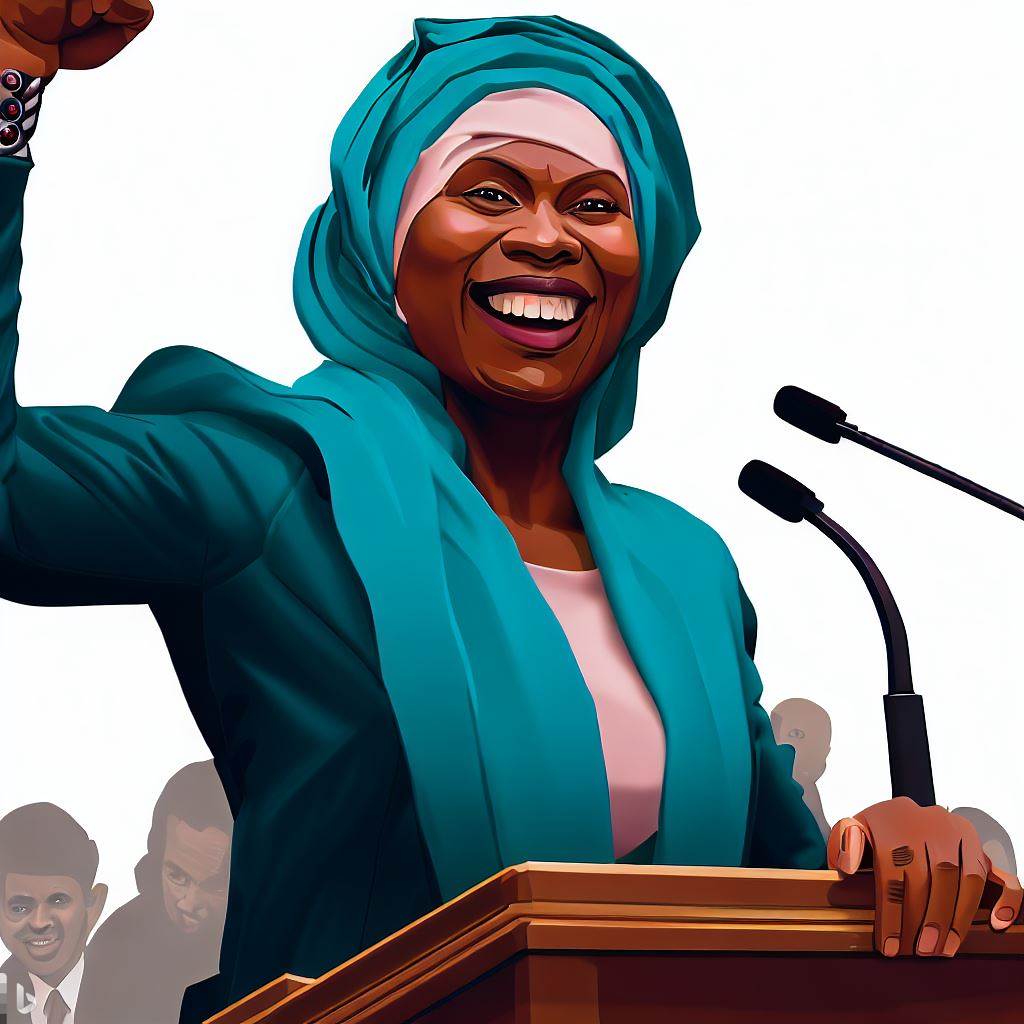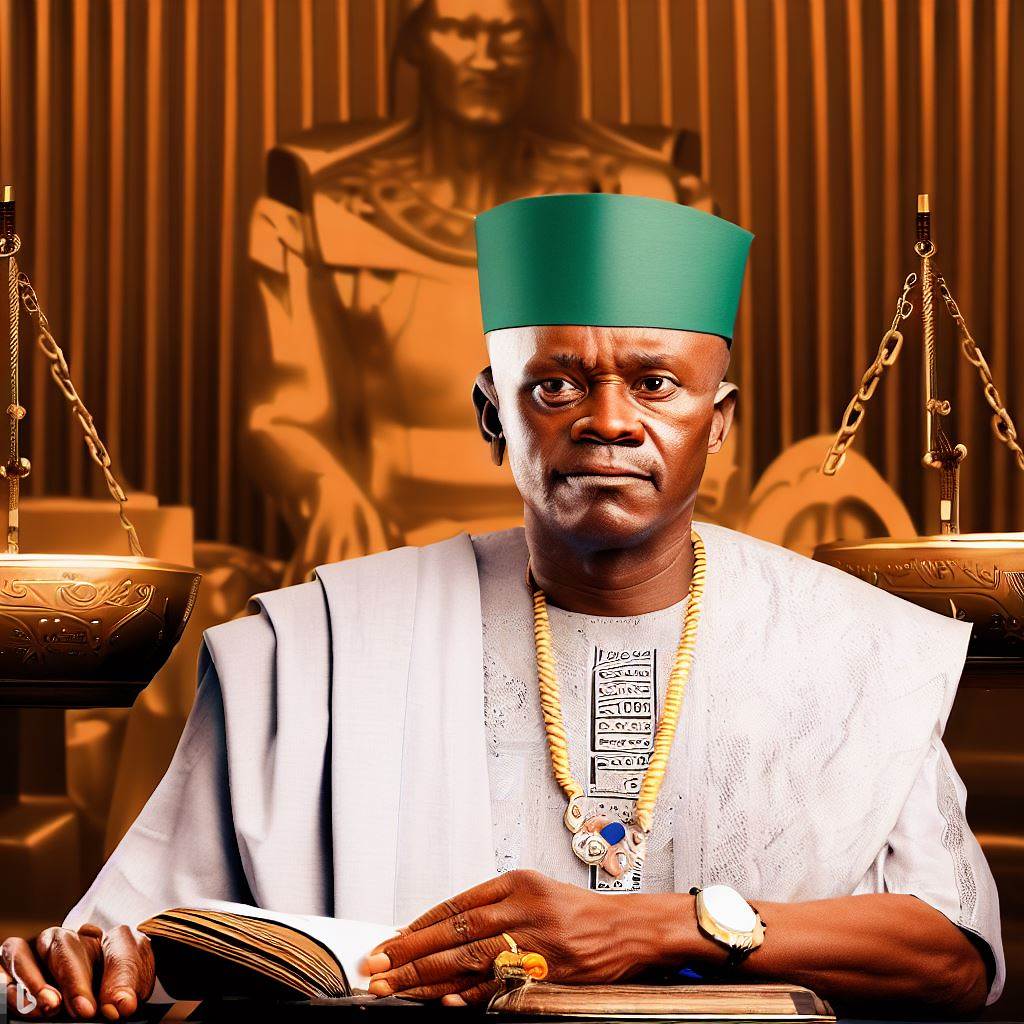Introduction
Nigerian politics has a complex and challenging history, marked by corruption and power struggles. This blog post explores Nigerian Politician Challenges and Triumphs.
Nigerian politicians constantly face numerous challenges and triumphs in their pursuit of political power and leadership.
This blog post aims to explore the journey of a Nigerian politician, shedding light on the obstacles they overcome and the accomplishments they achieve.
Nigeria’s political landscape has witnessed immense turmoil, corruption, and power struggles throughout its history.
Challenges and triumphs faced by politicians in Nigeria
Political leaders in Nigeria are confronted with a myriad of challenges and triumphs as they strive to navigate this intricate and highly competitive environment.
Nigerian politicians, upon entering the political arena, encounter numerous hurdles that test their resilience and determination.
They often face issues such as widespread corruption, ethnic tensions, and religious conflicts, all of which can complicate their path to success.
In addition, the pursuit of political power in Nigeria can be highly competitive and often requires significant financial resources and strong political networks.
However, amidst these challenges, Nigerian politicians have also achieved remarkable triumphs.
They have played pivotal roles in shaping national policies, implementing transformative reforms, and leading the country towards progress.
Many have successfully transcended social, cultural, and political barriers, earning the trust and support of the Nigerian people.
This blog post will delve into the journey of a Nigerian politician, providing insights into the difficulties they have surmounted and the victories they have attained.
By examining their experiences and accomplishments, we can gain a deeper understanding of the Nigerian political landscape and the resilience of its politicians.
In subsequent sections, we will explore specific challenges faced by Nigerian politicians, including corruption, electoral violence, and the power dynamics within the ruling class.
We will also highlight several triumphs achieved by these individuals, showcasing their contributions to nation-building and their efforts to improve the lives of the Nigerian people.
Stay tuned for an in-depth exploration of the challenges and triumphs of a Nigerian politician’s journey.
Early Life and Education
Childhood and Family Background
Growing up in a small village in Nigeria, the politician had a humble childhood. His family, although financially struggling, valued education and hard work.
With limited resources, they taught him the importance of perseverance and resilience.
The values instilled in him by his family, particularly the importance of education, further fueled his political aspirations.
The politician understood that education held the key to empowering individuals and transforming societies.
He believed that through his involvement in politics, he could advocate for educational reforms and provide opportunities for underprivileged children.
Education and Academic Achievements
Despite the odds stacked against him, the politician excelled academically throughout his schooling years. He displayed an insatiable thirst for knowledge, always eager to learn and expand his horizons.
His dedication paid off as he consistently ranked among the top students in his class.
Moreover, his academic achievements served as a testament to his capabilities and solidified his confidence in pursuing a political career.
Excelling academically gave him the necessary skills and knowledge to address the complex challenges faced by his community.
Influence of Early Life and Education on Political Aspirations
The politician’s early life and education played a pivotal role in shaping his decision to enter politics.
Growing up witnessing the inequalities and injustices within his community inspired him to make a difference.
He realized that to bring about meaningful change, he needed a platform like politics to amplify his voice. The politician also recognized that his education provided him with a broader perspective.
It exposed him to different ideas, cultures, and global issues, allowing him to approach politics with a more nuanced understanding.
This breadth of knowledge enabled him to connect with a diverse range of people and bridge the gaps that hindered progress.
The combination of his early life experiences and educational background propelled him to step into the political arena.
He yearned to create a just, equitable society where opportunities were accessible to all, regardless of their background.
His upbringing and education had taught him the transformative power of leadership, and he was determined to effect positive change.
In the end, the politician’s childhood emphasized the importance of hard work and instilled a sense of justice within him. His academic achievements showcased his dedication and intellectual prowess.
These factors, coupled with his belief in the power of education, molded his decision to pursue a career in politics.
By leveraging his upbringing and education, the politician aimed to reshape Nigeria’s political landscape and create a better future for all of its citizens.
Read: The Path to Politics: Becoming a Politician in Nigeria
Entry into Politics
The politician’s initial involvement in political activities
- The politician first became involved in political activities during their college years.
- They joined a student organization and actively participated in debates and discussions.
- Their passion for social change and advocacy led them to take on leadership roles within the organization.
- The politician quickly gained a reputation for their eloquence and ability to inspire others.
Challenges faced by the politician when starting their political career
- As a newcomer, the politician faced intense competition from seasoned politicians.
- They lacked financial resources and struggled to fund their campaigns.
- Negative public perception of politicians made it difficult for the politician to gain trust and support.
- The existing power structures and networks often marginalized the newcomer, hindering their progress.
Reasons behind the politician’s decision to enter politics
- The politician witnessed the challenges and inequalities faced by their fellow citizens.
- They realized that politics was the most effective platform to bring about meaningful change.
- The desire to address social issues, such as poverty and corruption, motivated their decision.
- The politician believed that they could make a difference and improve the lives of their constituents.
Read: Nigeria’s Military Strategy in a Changing World: An Analysis
Challenges Faced
Challenges faced by the politician during their political journey
- Political opponents constantly spreading false rumors to tarnish their reputation.
- Dealing with widespread corruption within the political system.
- Navigating the complex web of alliances and power dynamics.
- Facing significant financial constraints and limited funding for their campaigns.
- Balancing the demands of constituents with the expectations of party leaders.
The political landscape in Nigeria and the obstacles encountered by politicians
- Nigeria’s political scene characterized by intense competition and high-stakes elections.
- Influence of powerful interest groups and wealthy individuals on the political process.
- Deep-rooted ethnic and religious divisions that can hinder political unity and cooperation.
- Lack of transparency and accountability in the political system.
- Difficulty in implementing policy reforms and bringing about meaningful change.
Specific examples of challenges faced by the politician
- Corruption: Bribery attempts to sway their decisions and undermine their integrity.
- Violence: Physical threats from rival politicians and armed groups during election campaigns.
- Public Scrutiny: Constant media scrutiny and scrutiny from citizens regarding their actions and decisions.
- Ethnic tensions: Struggles to bridge gaps between different ethnic communities and gain widespread support.
- Party loyalty: Balancing personal convictions with the expectations and pressure from their political party.
These challenges represent just a fraction of the obstacles faced by a Nigerian politician throughout their journey.
The political landscape in Nigeria is demanding and often unforgiving, requiring an unwavering commitment to serving the people and a relentless determination to overcome the hurdles.
Read: Becoming a Military Officer in Nigeria: A Step-by-Step Guide

Strategies and Triumphs
Strategies employed by the politician to overcome challenges
- Building a Strong Support Network: The Nigerian politician recognized the importance of surrounding oneself with a reliable team of advisors and supporters.
- Forming Alliances: The politician developed strategic alliances with influential individuals and political parties to gain support and increase their chances of success.
- Effective Communication: The politician honed their communication skills to effectively convey their vision and gather support from the masses.
- Adaptability: Recognizing the ever-changing political landscape, the politician demonstrated flexibility and adaptability in their strategies to navigate through challenges.
- Continuous Learning: The politician actively sought knowledge and self-improvement, constantly expanding their understanding of politics and governance.
Specific triumphs achieved by the politician throughout their career
- Electoral Victory: The politician secured a landslide victory in their first election, earning a mandate from the people to represent them.
- Policy Reforms: Through their determined efforts, the politician successfully implemented significant policy reforms that had a positive impact on society.
- Economic Development: The politician’s focus on economic development led to increased investment, job creation, and a thriving business environment.
- Infrastructural Development: The politician spearheaded various infrastructure projects that transformed communities, improving the quality of life for citizens.
- Social Welfare Initiatives: The politician implemented welfare programs that provided support to the underprivileged, ensuring a more inclusive society.
The impact of the politician’s triumphs on their political career and the Nigerian society
- Enhanced Reputation: The politician’s triumphs solidified their reputation as a capable and effective leader, bolstering their political career.
- Increased Popular Support: The politician’s achievements resonated with the Nigerian society, garnering increased support from citizens.
- Influence and Power: The politician’s triumphs amplified their influence within the political landscape, enabling them to drive further reforms.
- Socioeconomic Progress: The politician’s triumphs contributed significantly to Nigeria’s socioeconomic progress, uplifting communities and improving living conditions.
- Inspiring Future Leaders: The politician’s success story served as an inspiration for aspiring politicians, encouraging them to pursue similar strategies for positive change.
In essence, the Nigerian politician’s journey was filled with challenges that were overcome through strategic approaches.
Their triumphs, including policy reforms, economic development, and social welfare initiatives, had a profound impact on their political career and Nigerian society at large.
By employing effective strategies, the politician achieved remarkable success and inspired others to follow in their footsteps.
Read: Government Policy and Its Impact on the Nigerian Military
Contributions and Impact
Contributions to Nigerian Politics and Society
The Nigerian politician’s journey has been marked by significant contributions to politics and society.
- The politician played a crucial role in promoting democratic values and institutions in Nigeria.
- Through his tireless efforts, he fostered inclusivity and encouraged citizen participation in the political process.
- He advocated for transparency and accountability, challenging corrupt practices within the government.
- The politician championed the rights of marginalized groups, working towards social and economic equality.
- He initiated various policies and initiatives aimed at improving the healthcare and education systems in Nigeria.
- The politician’s vision for economic development led to the implementation of progressive economic reforms.
- He prioritized infrastructure development, investing in transportation, energy, and communication networks.
- By promoting local industries and entrepreneurship, he stimulated job creation and economic growth in Nigeria.
- His commitment to environmental preservation led to the introduction of sustainable practices and conservation efforts.
Impact of the Politician’s Actions and Policies
The politician’s actions and policies had a profound impact on Nigerian politics and society.
- His emphasis on democratic values helped strengthen the political system, leading to more transparent and fair elections.
- By involving citizens in decision-making processes, he cultivated a sense of ownership and empowerment in the population.
- The politician’s anti-corruption measures paved the way for a more accountable and efficient government.
- His focus on social justice brought about positive changes in the lives of marginalized communities.
- Improved healthcare and education systems resulted in better access to essential services for all Nigerians.
- The politician’s economic reforms stimulated business growth, attracting both local and foreign investments.
- Infrastructure development enhanced connectivity and facilitated economic activities across the country.
- Job creation initiatives reduced unemployment rates and improved the overall socio-economic conditions of the people.
- Environmental conservation efforts mitigated the impact of climate change and preserved Nigeria’s natural resources.
Legacy of the Politician
The Nigerian politician left behind a lasting legacy that continues to shape the nation today.
- His contributions to Nigerian politics have set an example for future generations of politicians.
- The impact of his policies and actions can still be seen in the progress and development of Nigeria.
- His fight against corruption laid the foundation for a more transparent and accountable government.
- The politician’s advocacy for social justice inspired a culture of inclusiveness and equality in Nigerian society.
- Improved healthcare and education systems have had a lasting positive impact on the lives of Nigerians.
- His economic reforms paved the way for a thriving business environment and economic prosperity in Nigeria.
- Infrastructure development continues to support the growth of industries and improve the quality of life for Nigerians.
- The politician’s focus on job creation and entrepreneurship has empowered individuals and lifted many out of poverty.
- His commitment to environmental preservation has ensured the sustainability and beauty of Nigeria’s natural landscapes.
Conclusion
The Nigerian politician’s journey has been filled with challenges and triumphs.
From facing corruption and violence to overcoming obstacles and achieving success, he has experienced the full spectrum of the political landscape.
The significance of the politician’s journey in the context of Nigerian politics cannot be overstated.
His determination and resilience serve as an inspiration to other aspiring politicians and a reminder of the progress that can be made in the face of adversity.
The Nigerian politician’s journey is a testament to the power of perseverance and the potential for change.
It is a call to action for readers to reflect on their own roles in shaping the future of Nigerian politics and to strive for a more transparent and accountable government.
With determination and unity, we can overcome any challenges and triumph over all obstacles that come our way.




